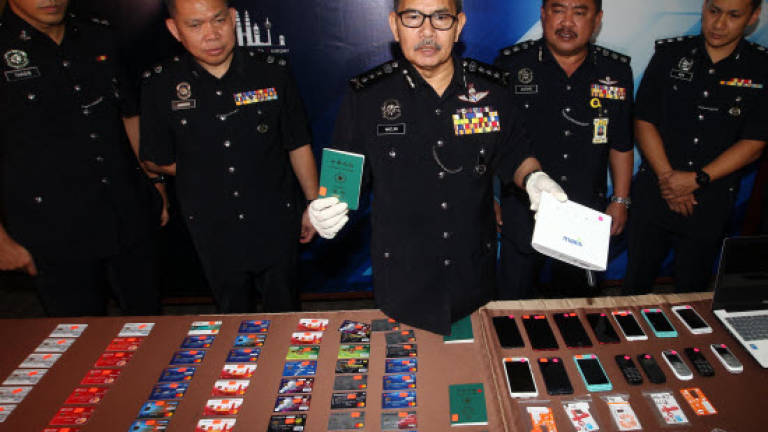Rise in 'Macau scam' cases: Police

KUALA LUMPUR: A total of 208 cheating cases committed through fake phone calls, or "Macau Scam", involving losses of RM14 million have been reported in the city said KL police chief Commissioner Datuk Seri Mazlan Lazim.
He said the "Macau scam" has seen a rise in cases compared to last year's statistics in Kuala Lumpur.
From January to July this year a total of 208 cases were reported compared to 2017 where during the same period 197 cases were reported.
He was also commenting on a case where recently a famous oil firm executive manager lost RM10,500 of her savings to a Macau scam syndicate.
"The 47-year-old woman was told that she had an outstanding of RM16,000 unpaid Goods and Services Tax (GST) payment, and was wanted by Kedah police for several criminal cases including a drug-related offence.
"The suspect then transferred the call to a number posing as the 'Kedah police headquarters', where several men claiming to be policemen told her that she will be brought to court for a drug and money laundering case and that her account will be frozen.
"Of course the victim will be panicked upon hearing all this and the suspect advised her to transfer all her money from her account to another account belonging to a man, where the money can be safely kept," he told a media conference here today.
The victim subsequently transferred RM10,500 from her account and later she realised that she have been scammed as her attempts to contact them failed.
Following investigations On July 24, police raided a condominium at Jalan Kuchai Lama and arrested four Taiwanese aged between 27 and 35 who is believed to be part of the syndicate who scammed the manager earlier.
Police seized 56 ATM cards, several handphones, internet routers, laptops and phones.
With their arrest police believe they have solved 24 cases with losses reported to be RM887,168.78.
Mazlan said the syndicate have used various modus operandi to deceive the victims into surrendering their money and they would contact the victims and posed as bank officers, police or court officers and debt collection company representatives.
The phone numbers that appeared on the victims' mobile phone screen are usually the same numbers owned by the relevant organisations. The syndicate members would make the calls via the Voice Over Internet Protocol (VOIP).